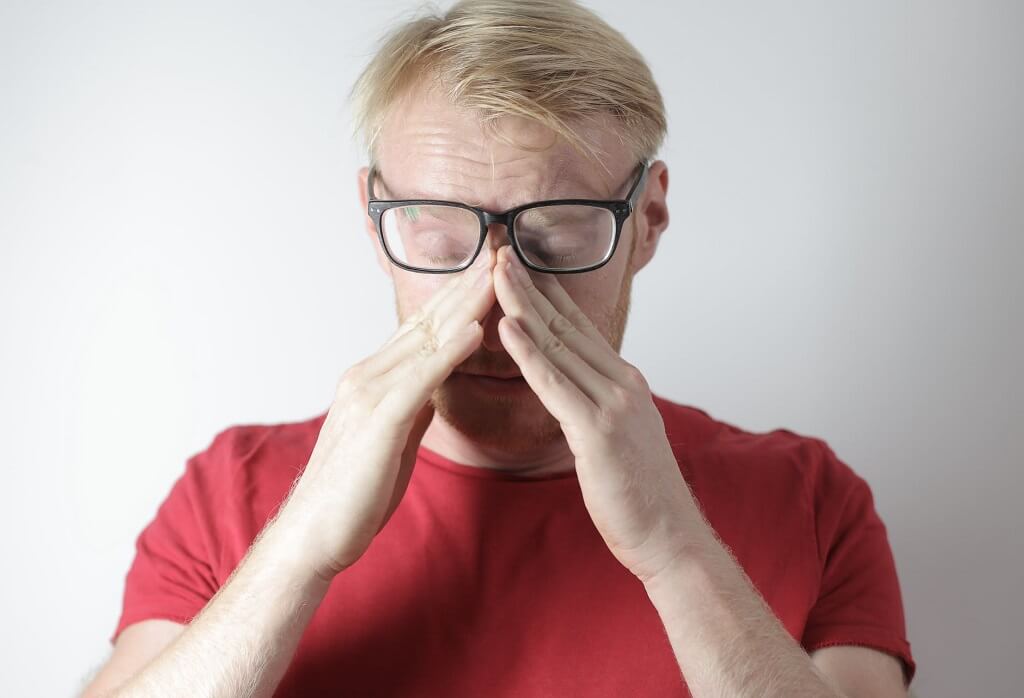Here's What Nobody Tells You About Eye Health
We tend to think about eye health in one-dimensional terms. You either have to get your eyes tested, or your sight is fine. But that's not how it works in reality. It turns out that our eyes are just as much a part of our bodies as anything else. So they tend to be affected by the same things that damage the rest of us.
The problem is that nobody is talking about these things. We still live in a culture where people develop problems with their eyes because of “old age.” But that's not the case. And science proves it.
In this post, we will take a brief look at all of the things that nobody tells you about eye health. By the end of it, you should have a much better idea of how to maintain excellent vision into your seventies and beyond.
Chemicals In Pools Can Damage Your Eyes
If you've ever gone for a swim in a chlorinated pool, you'll know that it can cause your eyes to burn. The chlorine attacks the sensitive membrane – which is why so many people wear goggles.
If you don't protect your eyes, it can lead to irritating and degeneration over time. Chlorine isn't harmless – it kills practically every bacteria that exists. Our cells are more robust but not invincible. So when it comes into contact with them, it causes damage.
The solution here is to wear protective ear wear that creates a proper seal around the eyes. Goggles are the obvious choice.
Even if you're not worried about chemicals in the water, you should wear them to protect you against debris that might hit your eyes. You can't always see well when swimming underwater with no eye protection. So that increases the likelihood that you'll bump into something.
Eating Junk Damages Your Vision
Pexels – CC0 License
People's eyes don't get fat, so it is often hard to see the damage that a poor diet does. But make no mistake; what you eat has a profound effect on your vision over the long-term.
At the back of the eye is the retina – a sensitive strip of cells that collects incoming light information and feeds it to the brain. Tiny blood vessels cover the structure in a lattice, providing it with the nutrients it needs to conduct its specialist work.
When you eat junk, though, high sugar levels in the blood damage these cells, and eventually, sight can fail. People with diabetes, for instance, can develop a condition called diabetic retinopathy. This condition occurs when high glucose levels in the blood damage the sensitive tissue at the back of the eye. If left untreated, it can lead to blindness.
Failing To Wear Shades In The Sun Hurts Your Eyes As Much As Your Skin
Sunlight is one of the biggest dangers for our eyes in the natural environment. In the ancient past, the average person only lived for around thirty years. So their eyes didn't have to last until old age – like they do today. For that reason, the retina doesn't have a great deal of protection against UV rays. So throughout a lifetime, it becomes progressively damaged.
As this website points out, though, you can stop the rot by merely blocking out ultraviolet light with sunglasses. Many now have tints that stop incoming light in its tracks and protect the eyes from further damage.
Eating Potato Chips Inflames Your Eyes
Inflammation is a good thing when you injure yourself. The body uses it to shuttle factors that repair your tissues to the injury site and protect the area during healing.
Inflammation, however, has a dark side. If it remains elevated long-term, it can damage tissues and cause them to degrade. That's why so many health gurus promote the idea of eating an anti-inflammatory diet. Essentially what they mean by that is one that doesn't trigger the immune system.
So, where do crisps come into all of this? Well, it turns out that they're high in certain oils and carbon-based compounds that trigger the immune system. So when you eat them, you induce an inflammatory response. And when that happens, it can lead to damage to the eyes over the long-term. It could be one of the reasons people in their thirties and forties start experiencing problems with their vision. The inflammation eats away at the fidelity of their sight, making it harder for them to discern the objects around them.
Watching TV At Night Leads To Eyestrain
Watching TV – or any backlit device – at night is a bad idea. The problem is that the light is so much brighter than the ambient level, meaning that the eyes have to adjust rapidly. One minute, your pupils are small. Next, the entire structure of the eye has to change. Usually, this process occurs slowly over time, as natural light levels change. But it can happen rapidly. And when this happens, it sometimes causes damage.
Failing To Eat A Balanced Diet Can Deprive Eyes Of Nutrients
We all know that we should eat a balanced diet – whatever that means. But when it comes to eye health, it might be even more important than you imagine.
The eyes depend on a range of vitamins and minerals to keep them healthy. The most important is arguably zinc and vitamin E. Without these, the eyes start to lose their integrity and can't maintain their integrity. People who have floaters can often trace them back to a time in their life when they were eating a poor diet and didn't get sufficient zinc.
Rubbing Your Eyes Can Break Blood Vessels In The Eye Balls
Next time you go to rub your eyes, you might want to reconsider, especially if you're a little squeamish. This habit can damage the blood vessels in the eyeballs themselves, causing mini ruptures that can make your eyes appear more bloodshot.
Instead of using your hands, try to use over-the-counter moisturizing eye drops. These are usually safe and effective and get rid of that annoying itching.
839GYLCCC1992





Leave a Reply